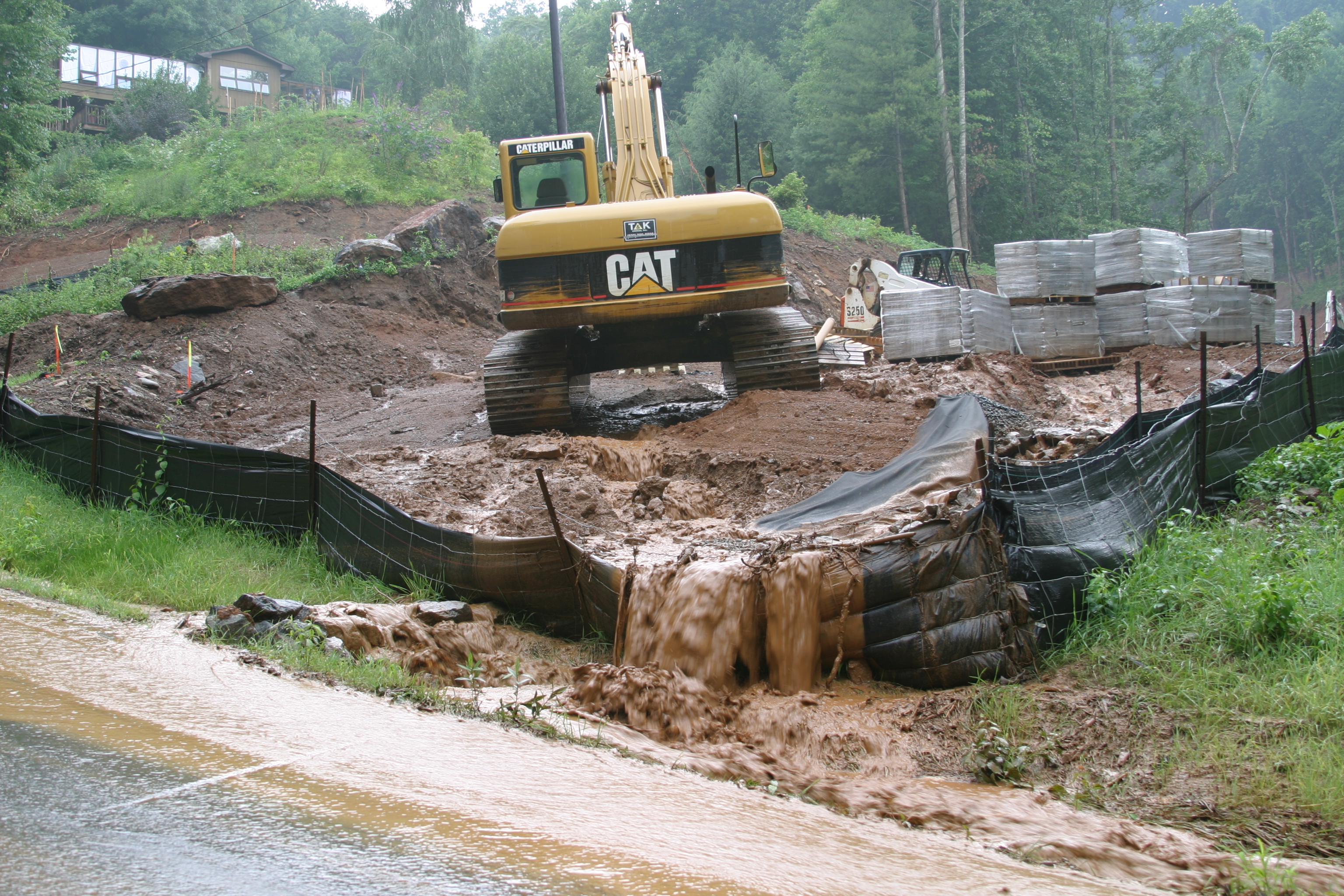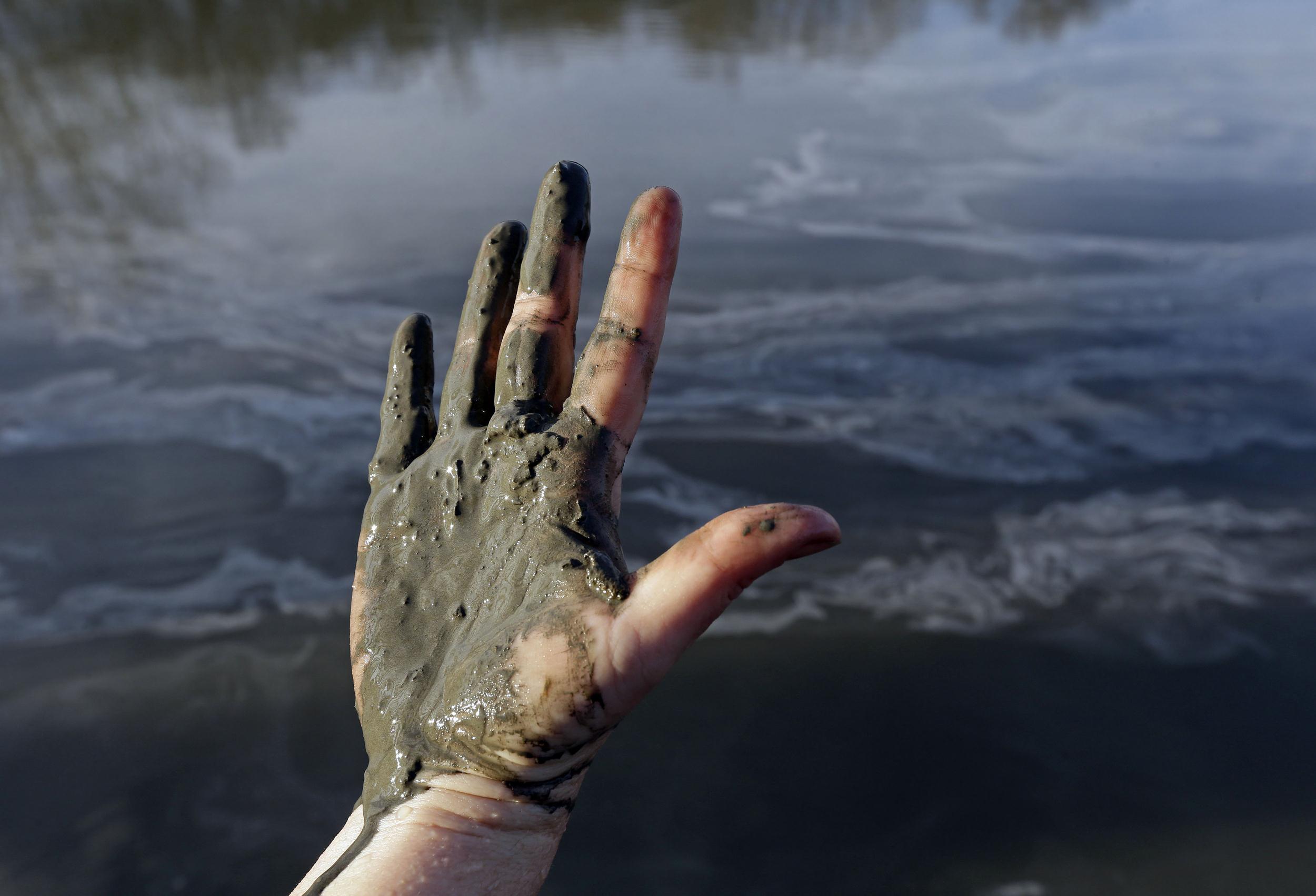Clean Waters
MountainTrue works to restore and preserve our waterways as healthy ecosystems that are great places to swim, paddle and play. Our Riverkeepers are the primary guardians of their respective river basins; and our members and volunteer maintain the health of our waterways by monitoring pollution and cleaning up our rivers and streams.
MountainTrue supports the development and enforcement of standards and regulations to protect surface and ground water, and we work to preserve and restore waterways as healthy ecosystems as well as recreational and aesthetic resources.
Programs
MountainTrue is dedicated to protecting our waterways and our mountain communities through a variety of programs:
Riverkeepers
French Broad River Paddle Trail℠
The French Broad River Paddle Trail℠ project was born out of the public’s desire to explore the entire French Broad River by boat. Now it is possible to do so, as the entire trail is composed of paddle-in-only campsites. The French Broad River Paddle Trail℠ is a recreational watercraft trail created and operated by MountainTrue and RiverLink. The paddle trail facilitates the public access to and camping on over 140 miles of the French Broad River, from the headwaters in Rosman, North Carolina to Douglas Lake in Tennessee.
Explore the French Broad
Clean Waters News
New Smartphone App Makes Anyone a Muddy Water Cop
Now anyone with a smartphone can help report illegal muddy water runoff and sources of sediment pollution. Muddy Water Watch, a project of MountainTrue, the French Broad Riverkeeper and the North Carolina Waterkeepers, has teamed up with Shiny Creek, an Asheville-based enterprise-class web and mobile application development company, to create a new smartphone app that makes documenting sources of dirty water easier than ever.
With the launch of the new app, MountainTrue and the Riverkeeper have also announced the first three Muddy Water Watch trainings of the season: June 20 at the Public Library in Marshall, June 28 at Haywood Community College’s Regional High Technology Center in Waynesvill and June 29 at AB Tech in Asheville.
What The Heck Is Going On In Raleigh Re: Coal Ash? Some Answers
The North Carolina House of Representatives passed SB 71 on Wednesday, May 25 by a vote of 86 to 25 and sent it to the Senate. While this bill contains some good provisions, such as requiring Duke Energy to provide a permanent, clean drinking water supply for some residents living near coal ash pits, overall we believe that risks of SB 71 outweigh its benefits. We are concerned that in the process of revising the state’s coal ash laws, the legislature may provide Duke Energy with an avenue to reclassify many of its coal ash pits and substantially decrease the quality of their clean up, including the number that are required to be excavated rather than simply capped in place. The legislature’s review of SB 71 is ongoing but moving quite quickly. North Carolinians who want to have their voices heard on this important legislation should act now.
French Broad Ranks 11th in Outside’s Best Trips of 2016
Outside magazine has released its annual list of the Best Trips of 2016 and the French Broad River is ranked #11 … in the world. The magazine states that these vanguard destinations are the favorites of its editors and writers, and the French Broad River gets accolades for its access to some of the world’s best craft breweries. Now’s your chance to make a reservation for the 2016 French Broad Riverkeeper Paddle Trip!
DEQ Puts Cliffside Area Residents at Risk of Coal Ash Contamination
The Department of Environmental Quality’s (DEQ) risk classification for North Carolina’s coal ash pits puts the health of residents who live downstream from the Cliffside coal ash impoundments, including those who live in Shelby and Gaffney, SC, at risk from contaminated drinking water.
Swimguide – the Good, the Bad and the Ugly
For seven months, from April 1 to October 31, over 25 volunteers took more than 575 E. coli water samples to ensure the waterways of the French Broad River are safe for swimming. This data was collected from 22 sites throughout the watershed, from Rosman in Transylvania County to Hot Springs in Madison County. Read on to find out which sites made our lists for the Good, the Bad and the Ugly.




